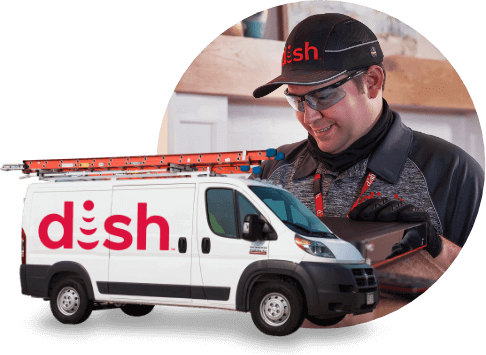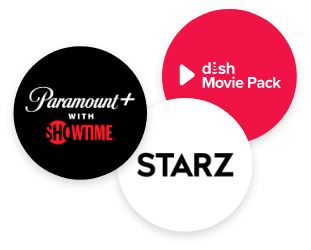Comparing Municipal Broadband vs Private ISPs

Table of Contents
Let me guess—your internet is driving you crazy. Perhaps your “high-speed" connection slows down during video calls, your bill keeps increasing, or customer service keeps you on hold for hours. Sound familiar? You’re not alone.
Here’s what might surprise you: some communities have ditched the big ISPs entirely and built their own networks. Ever heard of municipal broadband? It’s when your city says, “We’re tired of waiting for corporations to deliver decent internet. We’re doing it ourselves."
Take Chattanooga, Tennessee. This city built its fiber network and offers gigabit speeds that make Netflix buffer times a distant memory [1]. Or in Sandy, Oregon, where residents pay less than $42 a month for fiber internet that costs twice as much from private companies [2].
Sounds amazing, right? But here’s the catch—some cities have tried this and failed spectacularly, costing taxpayers millions. Meanwhile, companies like Verizon are fighting back with competitive plans and massive network investments.
So what’s the real deal? Is municipal broadband the answer to our internet prayers, or just another government program that sounds great but falls apart? More importantly, which option actually delivers better value for your family?
Let’s figure it out together. We’ll compare real costs, actual speeds, and customer experiences to help you understand which internet option might work best for your community—and your wallet.

Government-funded internet
What is Municipal Broadband?
Municipal broadband refers to internet service that’s entirely or partially owned and operated by local government entities or public utilities. Think of it as treating internet access like any other essential utility—water, electricity, or sewage—that communities provide for their residents.
There are 331 municipal broadband networks in the USA as of May 2025, serving communities ranging from small rural towns to major metropolitan areas [3]. These networks take various forms, from basic infrastructure that private companies lease to full-service operations that compete directly with commercial ISPs.
Municipal broadband networks typically follow one of five main models:
Full-Service Networks operate like traditional ISPs, with the city providing internet, TV, and phone services directly to residents. Chattanooga’s EPB is the poster child for this approach—the city-owned utility offers gigabit speeds throughout its service area and consistently earns top customer satisfaction ratings [1].
Open Access Networks involve cities building the infrastructure and then leasing capacity to multiple private ISPs. This creates competition on a shared network. Utah’s UTOPIA network exemplifies this model, allowing residents to choose from multiple service providers on the same municipal infrastructure [4].
Dark Fiber Networks sees municipalities installing fiber cables without the equipment needed to activate them. Private ISPs then lease this “dark" fiber and light it up themselves. This reduces the city’s upfront costs while maintaining public ownership of the infrastructure.
The Case for Municipal Broadband
Municipal broadband advocates make compelling arguments about why local control can deliver better internet service than private companies.
Speed and Performance Advantages
When it comes to raw performance, municipal networks often outshine their private competitors. In 23 of the 27 markets where researchers could make direct comparisons, they found that prices for community-owned networks were between 2.9% and 50% cheaper than the lowest-cost service from a private ISP [5].
Municipal networks also dominate speed rankings. According to research from the Institute for Local Self-Reliance, municipal networks account for nine of the ten fastest broadband networks in the country [6]. Chattanooga’s EPB famously became the first provider in the US to offer gigabit internet service throughout its entire service area back in 2010, years before private companies offered similar speeds [7].
Affordability and Value
Cost represents another major advantage for many municipal networks. While private ISPs must generate profits for shareholders, municipal networks can operate on a break-even basis, passing savings directly to residents.
A 2017 Pew Research Center study found there’s significant public support for municipal broadband options. Of the 4,000 American adults surveyed, 70% believe “local governments should be able to build their own broadband networks if existing services in the area are either too expensive or not good enough. [8]"
Serving Underserved Communities
Municipal networks excel at serving areas that private companies ignore. Rural and low-income neighborhoods often lack high-speed internet because private ISPs can’t generate sufficient profits from these markets. Municipal networks, freed from profit pressures, can extend service to every resident regardless of economic factors.
Many municipal networks also provide free or low-cost internet to schools, libraries, and low-income households—services that private ISPs rarely offer without government subsidies.

The private ISP argument
The Private ISP Advantage
Despite the growing popularity of municipal broadband, private internet service providers offer significant advantages that shouldn’t be overlooked.
Scale and Resources
Private ISPs operate with massive scale advantages that most municipalities can’t match. Companies like Verizon’s network spans multiple countries and serves millions of customers. This scale enables private companies to negotiate better equipment prices, develop advanced technologies, and hire specialized technical talent.
Additionally, large ISPs can offer competitive pricing in response to market pressure.
Private companies also invest heavily in research and development. They contribute to industry standards organizations, develop new technologies, and drive innovation across the internet ecosystem. Municipal networks often lack the resources necessary for this type of industry-wide advancement.
Technical Expertise and Experience
Building and operating broadband networks requires specialized knowledge that takes years to develop. Private ISPs employ thousands of engineers, technicians, and network specialists with decades of combined experience. They understand the complexities of internet routing, network security, and equipment maintenance in ways that most municipal governments don’t.
When problems arise—and they will—private ISPs can draw on vast technical resources and established vendor relationships to resolve issues quickly. Municipal networks frequently struggle to find qualified personnel, particularly in smaller communities where technical expertise is scarce.
Financial Stability and Risk Management
Private ISPs spread financial risk across large customer bases and diverse revenue streams. If one market underperforms, profits from other areas can compensate for the shortfall. Municipal networks lack this diversification, making them vulnerable to local economic downturns or unexpected infrastructure costs.
Currently, 17 states have some form of legal restrictions on municipal broadband, and six others have more limited restrictions [9]. These barriers, often promoted by incumbent ISPs, can make municipal broadband projects more expensive and time-consuming to implement.

Breaking down the numbers
Cost Comparison: Municipal Broadband vs Private ISPs
When comparing municipal broadband and private ISPs, price differences can be striking, but the picture is more complex than simple monthly bills might suggest.
A study from the Phoenix Center found that average prices are about 13% higher in cities with a municipal provider than in cities without a government-run network [10].
Find Your Perfect Internet Provider
Whether your community has municipal broadband, private ISPs, or both, finding the right internet service for your specific needs requires comparing available options in your area.
Internet availability and pricing vary dramatically by location, even within the same city. Rural areas might have limited choices between satellite providers and DSL, while urban centers could offer dozens of options, including fiber, cable, and wireless services.
Ready to explore your internet options? Enter your zip code here to discover the internet service providers available in your area, compare their speeds and pricing, and find the perfect connection for your home or business.
Don’t settle for slow speeds, high prices, or poor customer service. Take control of your internet experience today by comparing all available providers in your area and finding the service that delivers the speed, value, and reliability you deserve.
Sources
[1] Cities-today.com. “Chattanooga’s Municipal Broadband"
[2] Ci.sandy.or.us. “Residential Services"
[3] Broadbandnow.com. “Municipal providers"
[4] Utopiafiber.com
[5] Allconnect.com. “Cities with cheap high-speed internet"
[6] ilsr.org. “Snapshots Fact Sheet"
[7] Epb.com. “EPB Launches America’s First Community-Wide 25 Gig Internet Service"
[8] Pewresearch.org. “Americans Have Mixed Views on Policies Encouraging Broadband Adoption"
[9] Rockinst.org. “Should states fund municipal broadband and cooperatives?"
[10] Consumerchoicecenter.org. “Follies of Municipal Broadband"












 Call
Call 

 Access Your Account
Access Your Account